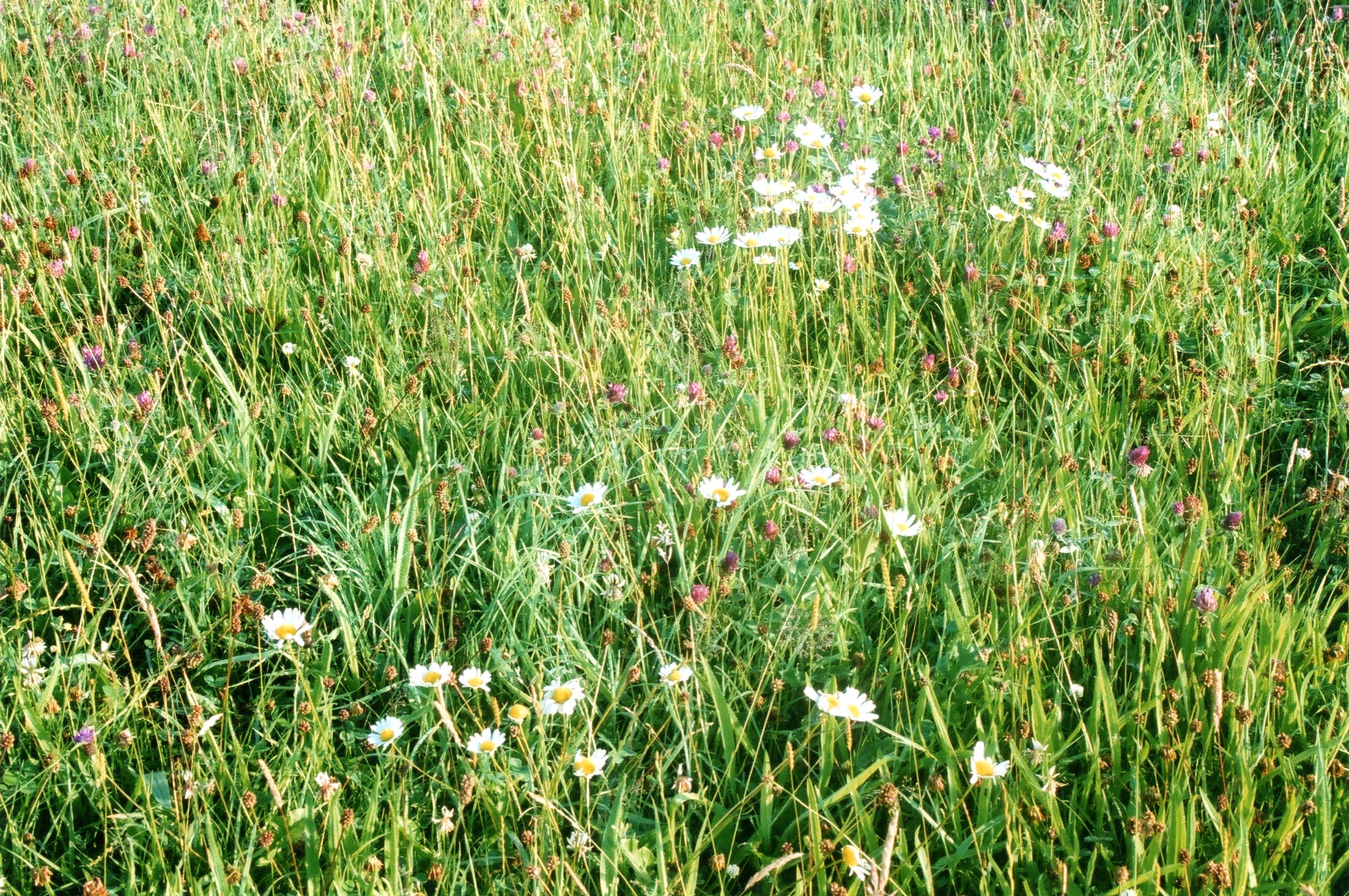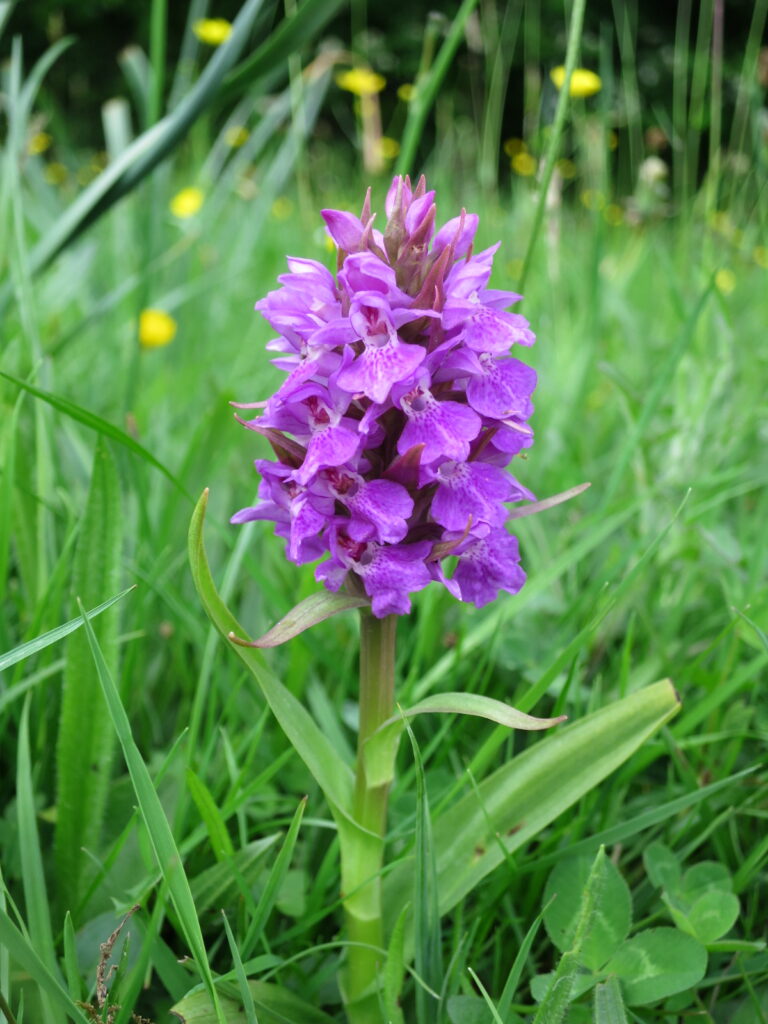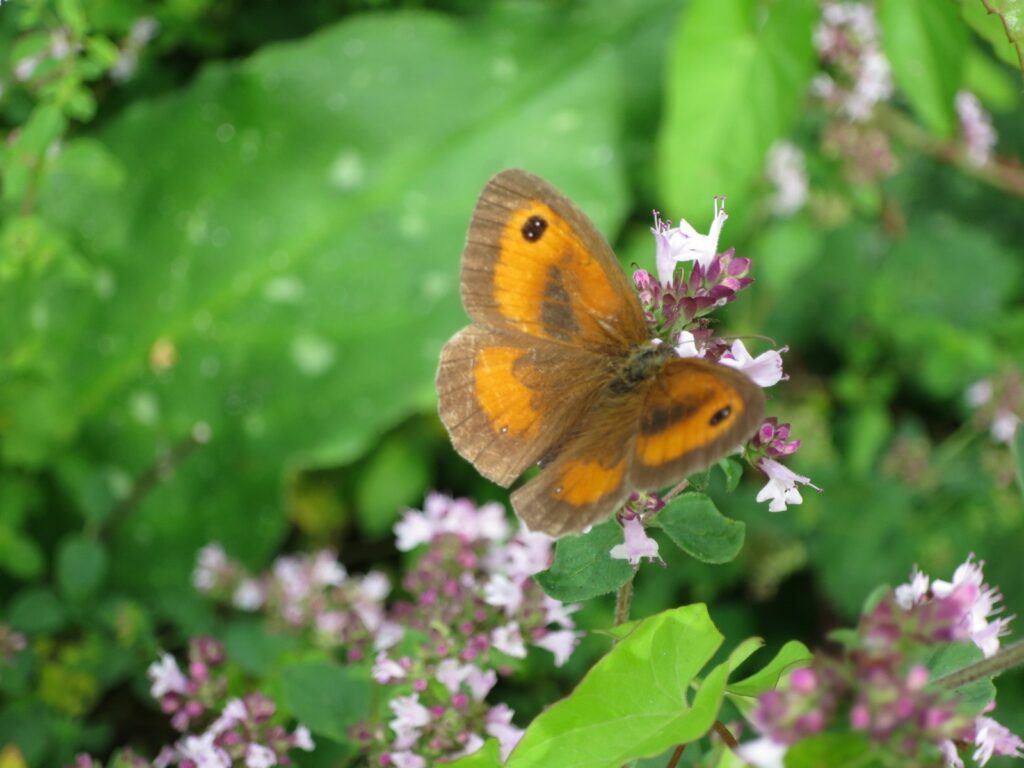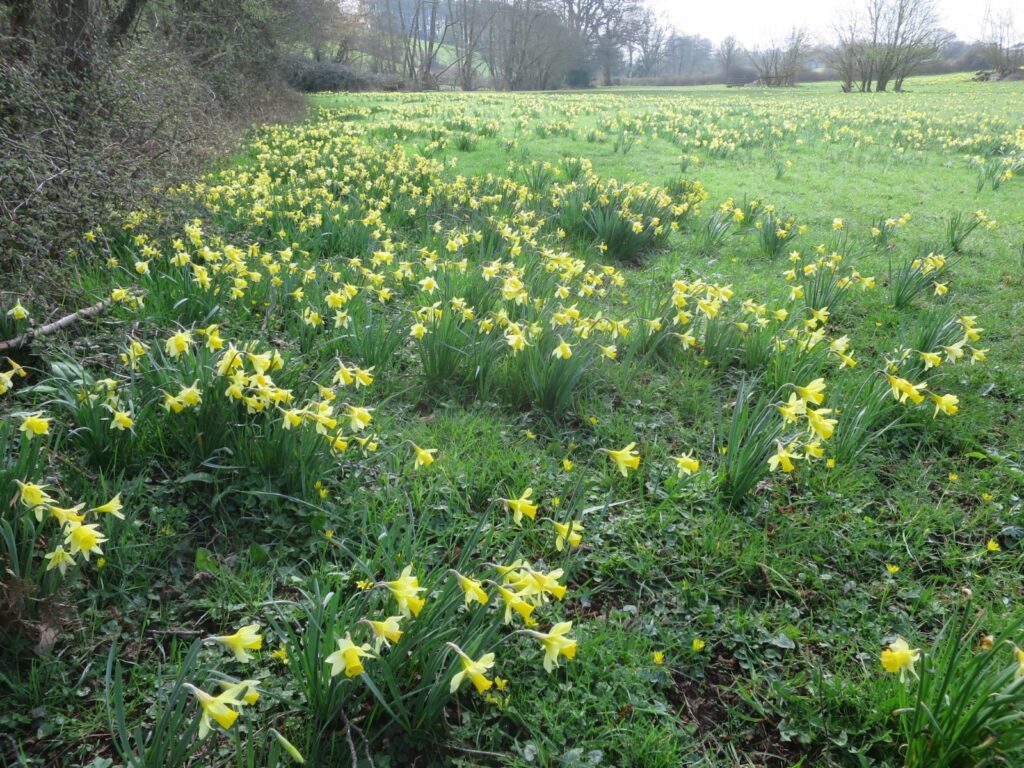
17 acres of species-rich wildflower meadow, woodland, orchard and gardens are managed for biodiversity using organic methods and permaculture design principles. We aim for health and wellbeing of habitats for wildlife, animals and humans.
Millers Farm is set in Brains Green, a hamlet on the edge of the Statutory Forest of Dean in Gloucestershire. Home to Sue Chudley and Dave Gooding, we manage the 17 acres of grassland, woodland, orchard and gardens using organic methods and permaculture design principles aiming to lead a sustainable way of life.
Since the derelict property was bought in 1994, all renovations to the house and barn have been done with sustainability in mind, using on-site Forest of Dean stone, locally grown green oak, reclaimed timber and roof tiles. Hemp, sheepswool and warmcell insulation and chemical free paints are used throughout. New outbuildings are of timber frame and clad construction, one with a turf roof. A compost toilet is used by campers. We coppice enough firewood, all grown on the farm, to supply the ceramic stove and woodburner in the house and the biomass boiler for the barn. Three large solar thermal panels supply hot water to both buildings, and PV panels have been installed to supply electricity. Rainwater from the roofs is harvested to use in the vegetable garden.
In the garden, a variety of vegetables and soft fruit are grown in raised beds and polytunnels, ensuring all year round crops. Compost and manure from our livestock maintain fertility organically. Several varieties of top fruit, edible berries and nuts are also grown. Dave keeps bees, maintaining around 10 hives which produce honey, for sale at the farm.
Large oaks, small-leaved lime and alder grow along the boundaries of the farm and the Forge Brook which runs through the valley from Soudley to Blakeney. A Woodland Grant Scheme enabled the planting of about 500 mixed native broadleaf trees, connecting the existing remnants of ancient woodland.
The grassland has been divided into small fields and has a track running round the edge for movement of grazing animals; a small flock of sheep and our 3 native ponies. Rotation round the fields means no worming, and following sheep with horses ensures even grazing. The species-rich wildflower meadows are managed for biodiversity, with summer haymaking providing winter food for the animals. In spring wild daffodils cover the lower fields, with ransoms and bluebells in the 2 acres of woodland.


